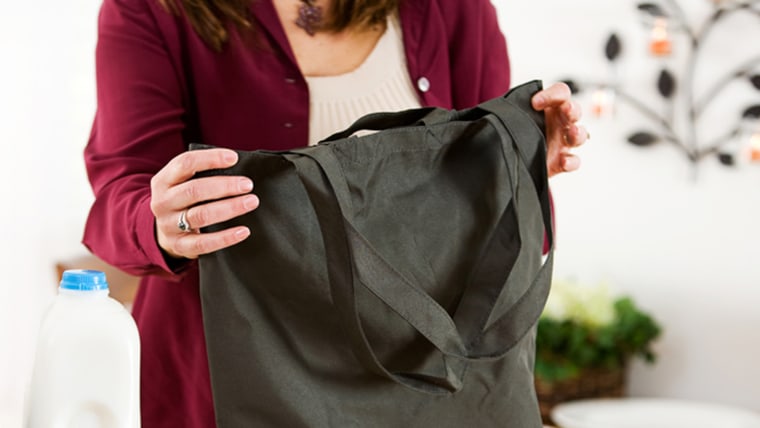Shoppers who bring their own bags to the grocery store tend to splurge on more junk food, according to a new study published in the Journal of Marketing.
While it's true that shoppers who use their own bags — as opposed to the plastic throwaway ones in the store — buy more organic products, they're also stocking their carts with more chips, cookies, ice cream and candy, according to the study.

Bryan Bollinger, an assistant professor of marketing at Duke University and one of the study's authors, told TODAY.com that the findings suggest reusable shopping bags trigger a licensing effect — in other words, shoppers are rewarding themselves for a good deed.
RELATED: Why grocery shopping while hungry isn't a good idea
"It's the same thing as when someone says, 'I exercised this morning, I deserve a dessert at dinner,'" Bollinger said.
However, buying more junk food because you're carrying your own shopping bags is "probably not conscious for a lot of people," he added.
For their research, Bollinger and co-author Uma Karmarkar, an assistant professor of business administration at Harvard University, examined nearly two years' worth of transactional data from a California grocery store, comparing what shoppers purchased when they brought their own bags to what they bought when they didn't. They also conducted research online, polling participants about their grocery shopping habits.
RELATED: Lose 10 pounds this month with Joy Bauer's grocery list
The authors asked why shoppers brought their own bags, and found that the licensing effect only happened when shoppers brought the bags on their own merit, and not because they were shopping at a store that didn't provide plastic bags, for example.
In those cases, shoppers don't feel as virtuous, and therefore aren't as likely to indulge, Bollinger said.
The authors noted that the findings didn't apply when shoppers had children. Parents' shopping habits were less likely to be affected by whether or not they brought reusable bags.
"Our speculation is that when you have children, you have other considerations and concerns when shopping," Bollinger said.